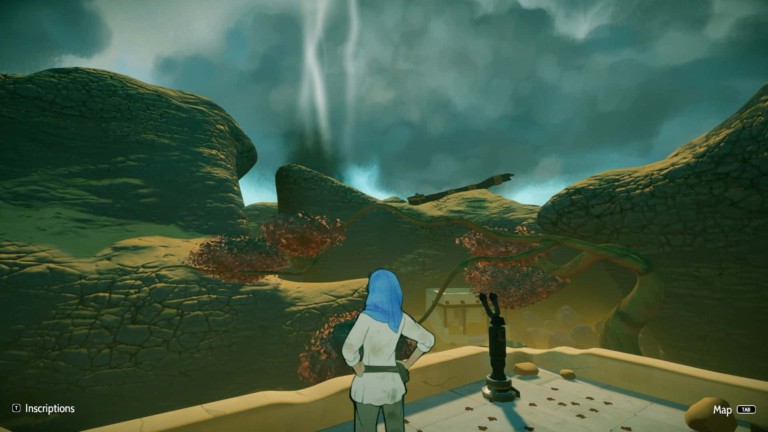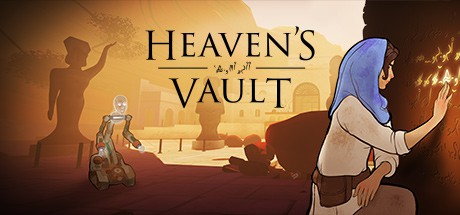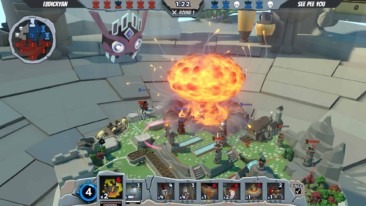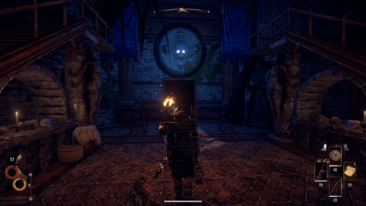Heaven’s Vault by Inkle
Inkle has grown by leaps and bounds, first adapting Steve Jackson’s Sorcery! series of single-player game books to digital media, then expanding into steampunk interactive fiction with the award-winning 80 Days, which was less an adaptation of the similarly titled Jules Verne novel than a brilliant and original homage.
With Heaven’s Vault, the Cambridge devs leap forward yet again with a brand new setting, an original mechanic based on hieroglyphs, and – as we’ve come to expect from the studio – a branching narrative with tons of evocative writing.
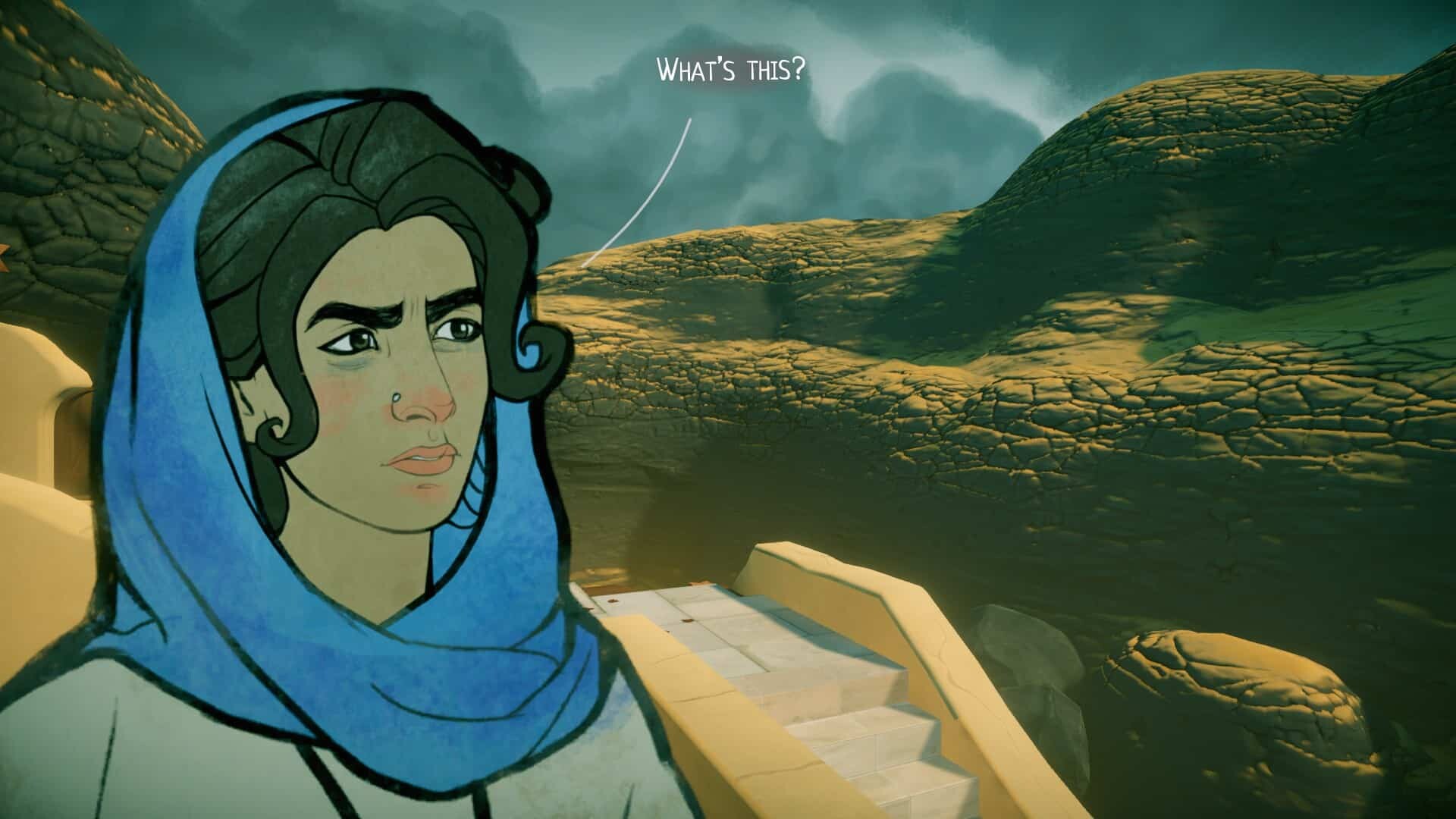
The Decline and Fall of the Holy Empire
The basic plot set-up will feel familiar to fans of classic science fiction; Aliya, our protagonist, is an archaeologist on Iox, attempting to piece together a half-remembered past of a more glorious – and much more technologically advanced – historical society.
The technological disparity between the ancient Holy Empire and the current Ioxian Protectorate is such that while the top scientists of the present day are able to work with robots, no one knows how to build them; they simply dig them up from historic sites and reactivate them.
And the current powers-that-be were so afraid of the knowledge of their predecessors, they even managed to erase most traces of their language, much as subsequent Egyptian dynasties attempted to erase the memory of the so-called “heretic pharaoh” Akhenaten.
Shades of Frank Herbert’s Dune series, then, with perhaps a hint of Isaac Asimov’s Foundation novels.
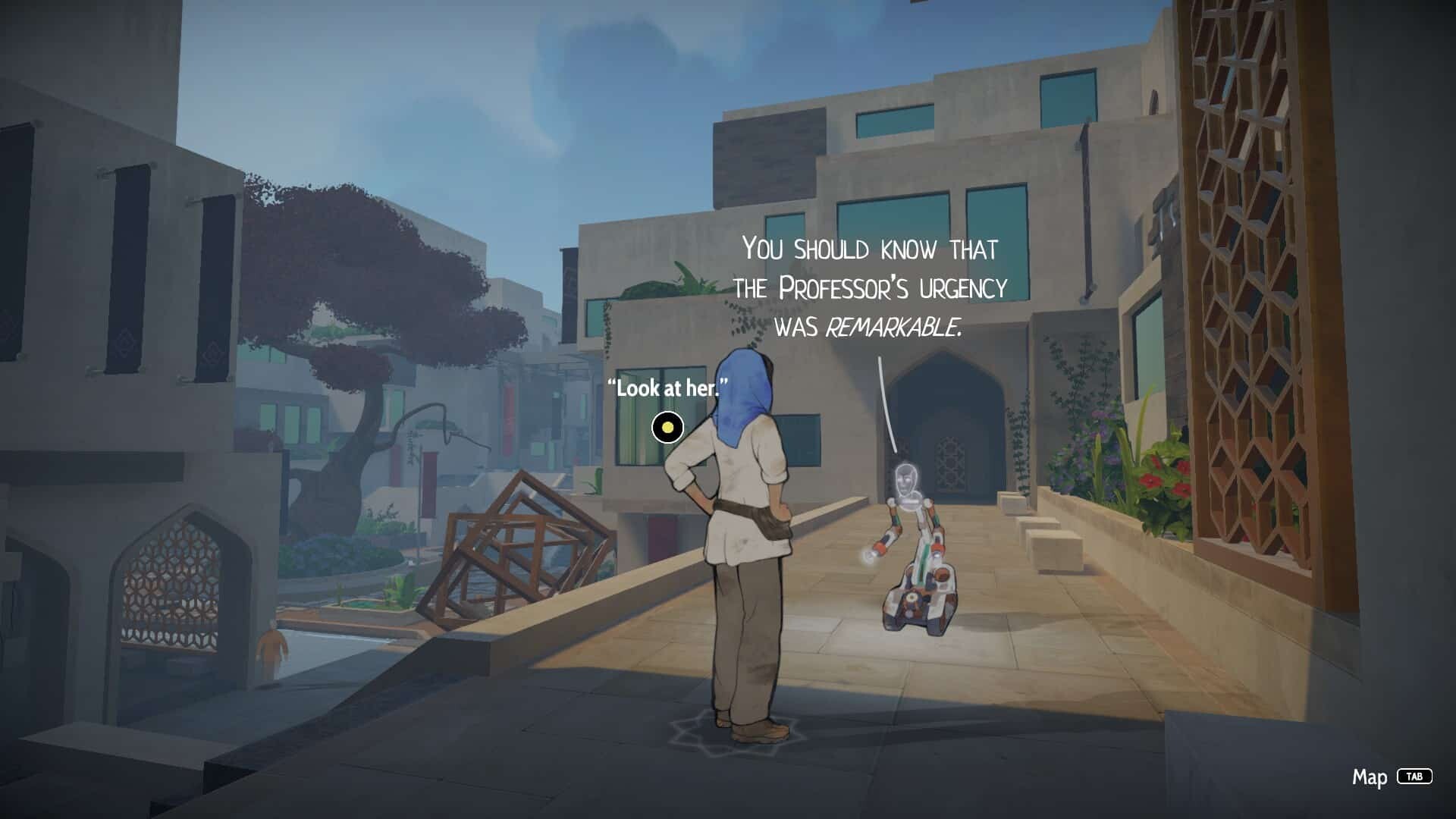
A Little Bit of History Repeating
Move past the introduction, though, and Heaven’s Vault is quick to introduce plenty of twists on what seemed like a familiar formula.
On top of the literary parallels and historical references, the current rulers of the Nebula believe in something called “The Loop,” which borrows a bit from Hindu and Buddhist conceptions of history as an endless cycle and is tied into funereal customs.
In short, burial after death is the worst fate imaginable, because it prevents a soul from returning. The proper custom is cremation, allowing the soul of the departed to rejoin “the rivers,” the endless looping currents of matter joining the moons of the Nebula and sailed upon by a lucky few.
(This understandably leads to a lack of conventional grave sites, which undoubtedly makes Aliya’s archaeological work more difficult.)
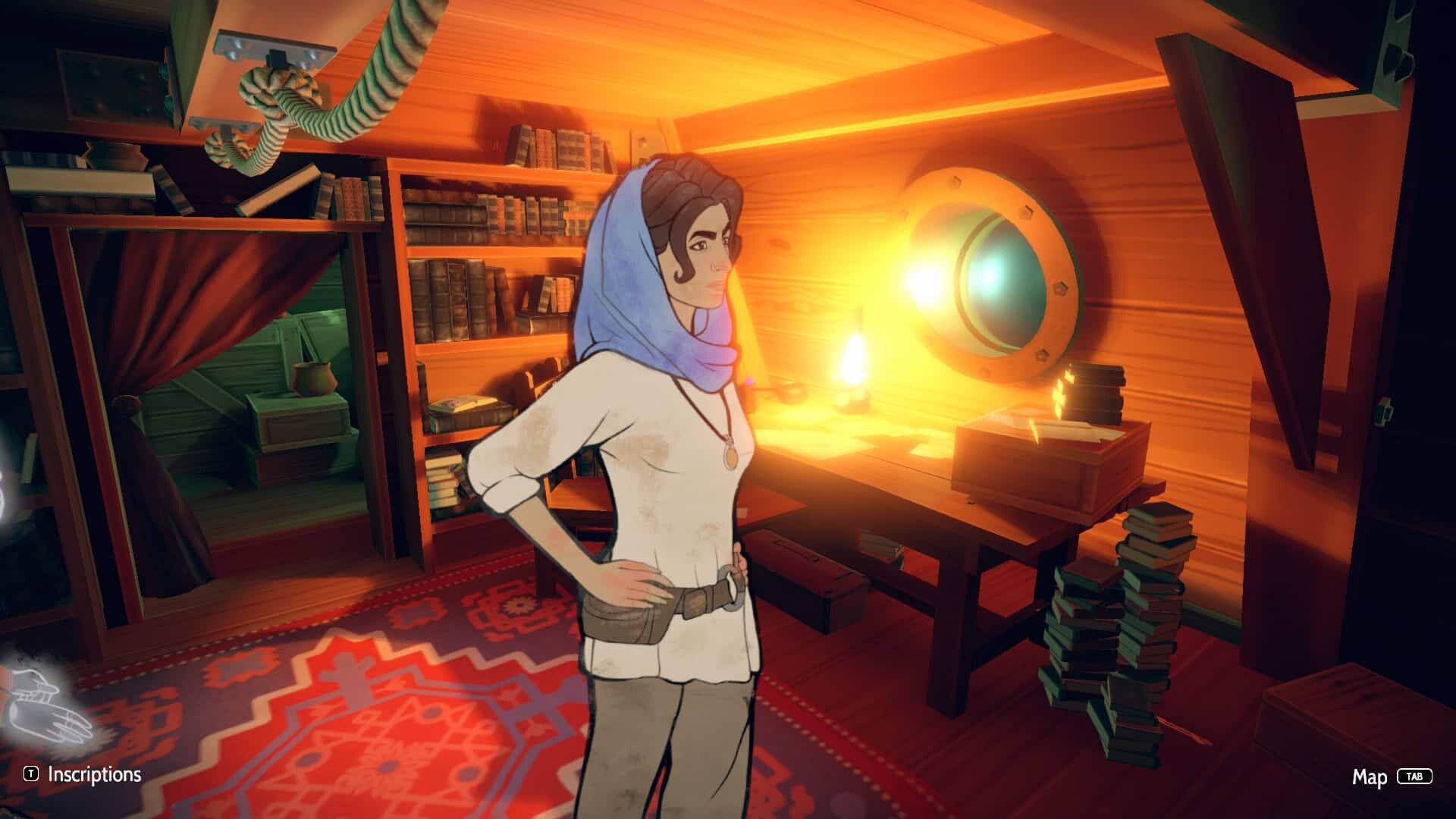
Mine Eyes Have Seen the Glory
These allusions and hints to our world’s history and religion are conveyed wonderfully through the game’s graphics and music alike.
In a welcome change from convention, the art borrows more from French and Belgian bandes dessinées than manga – brightly colored but simplistic character designs contrast with richly detailed and grandiose background imagery.
Vaguely Mediterranean-inspired environments – from the Islamic geometric patterns adorning the university buildings on Iox to dazzling white citadels reminiscent of Santorini – evoke enough of our own ancient world to really drive home the sense of uncovering long-buried history while still seeming unique enough to make each unlocked location feel like a new discovery.

And the rivers of the nebula themselves – so important as a theological theme, but also the physical backbone of the world Heaven’s Vault has created – are more wonderful still. The simple mini-game of sailing between locations is so visually breathtaking that I spent long periods just watching the winds swirl around my character’s ship.
Laurence Chapman’s score is similarly evocative. It borrows from both classical and Arabic moods to create a sense of timeless mystery, with more intimate piano and strings arrangements to evoke nostalgia in the game’s quieter, more personal moments.
Able Was I, Ere I Saw Elboreth
While the central theme of Heaven’s Vault is as vast as the history of the universe itself, it’s not so heady that it loses sight of its humanity.
Aliya herself is an exceptional character. She doesn’t like many people – and she hates robots in general and her university-assigned robot companion “Six” in particular – but it’s the coping mechanism of someone who feels like she doesn’t belong anywhere.
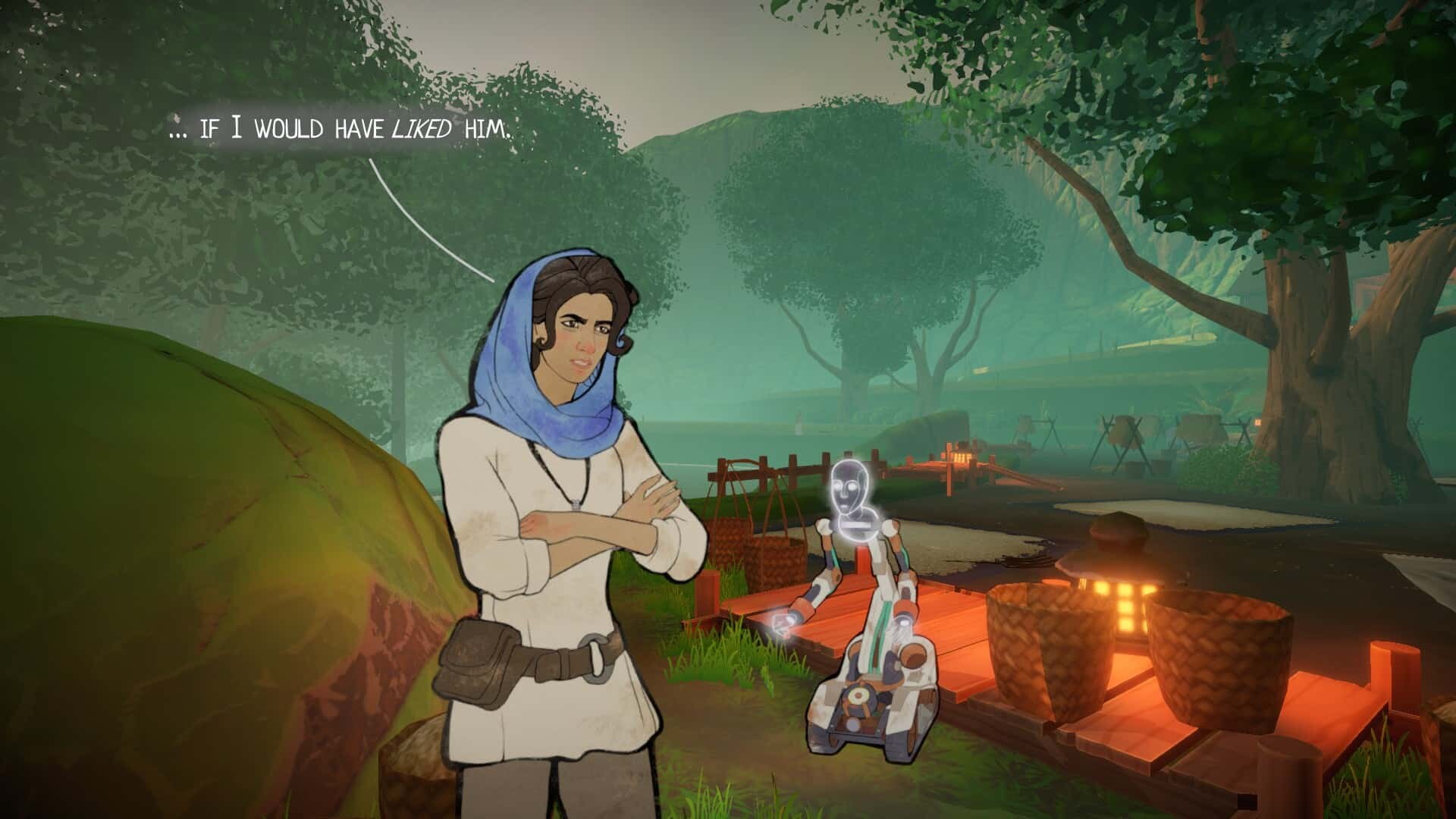
This becomes especially apparent as the game reveals more of her back story and the way her own orphan childhood on the poverty-stricken moon of Elboreth – prior to being taken on by her academic mentor – serves as a microcosm of the tensions between Iox and its colonies.
And her contentious relationship with Six the robot – marked equally by obvious resentment and a subtler empathy – is as much a highlight of the game’s unfolding narrative as the grander cosmological and historical mysteries.
Lost in Translation…and Found Again
Heaven’s Vault isn’t quite perfect.
The game’s much-vaunted translation system – Aliya learns about the ancients by deciphering inscriptions on their artifacts – felt so much like random guessing at first that it almost made me lose heart in the beginning. It does get better after you’ve confirmed some basic words and phrases a few hours in, but it seems like an archaeologist should be more competent at this sort of thing from the get-go.
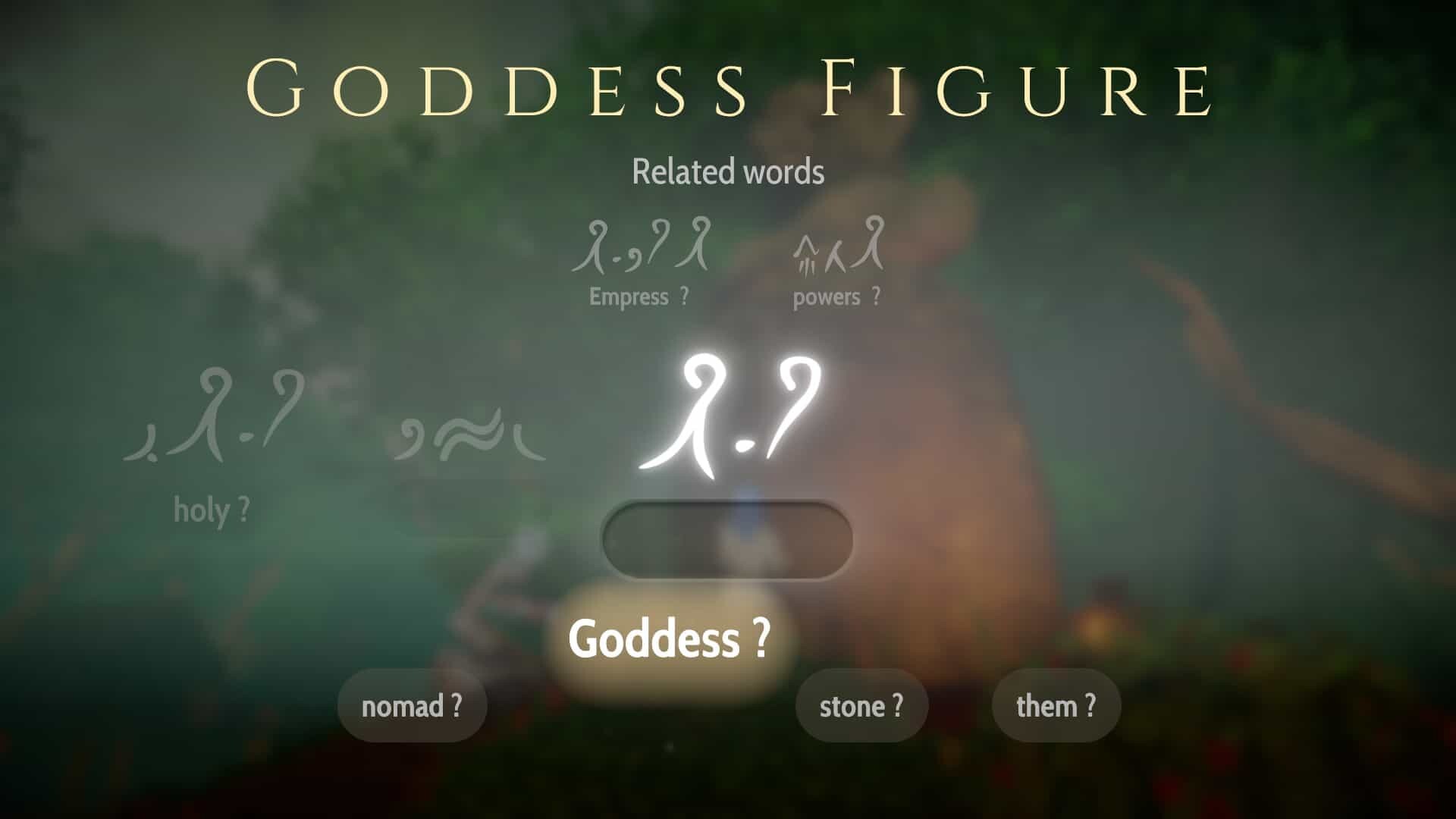
The character animations also feel a little flat, though subtle touches like ghostly images of characters that fade a moment after they move – and dialogue that floats away like balloons – are visual reminders of the game’s dual themes of history’s enduring presence and time’s ephemeral nature.
Unfortunately, I did find a few glitches in the narrative paths. I’d make one choice – to conceal the discovery of a particular artifact from Six, for example – but the game would continue on as though I’d made the other; i.e. I’d ask Six to research said artifact’s provenance.
These are extremely minor quibbles, though, and come down more to personal taste than anything else.
More importantly, they don’t really interfere with the story, which sucked me right in with its characters, its world-building and its mysteries.
Heaven’s Vault nails that “one more chapter” feeling that we bookworms know all too well – knowing we’re going to be exhausted tomorrow, but reading past our bedtime anyway because we just can’t wait to see what happens next.
Heaven’s Vault is available via Steam.
[xrr rating=”4.5/5″]
Watch the official trailer for Heaven’s Vault below:

